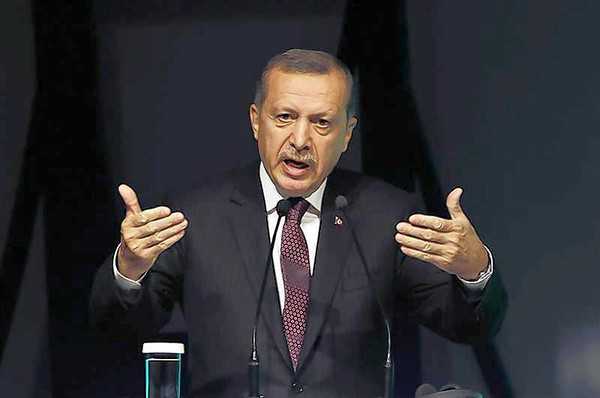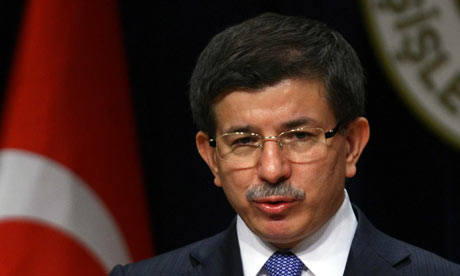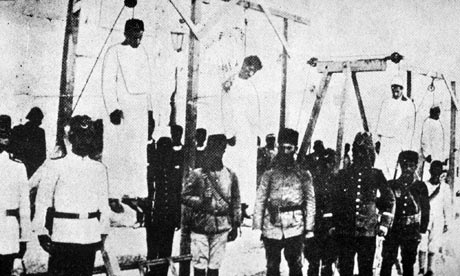Baroness Sarah Ludford Ingiliz Liberal Party Avrupa Milletvekili – soyledikleri cok guzelkendisine tesekkur edelim assagidaki yazisi icin (emaili var)
Haluk
Turkish Forum, Ingiltere
YONETIM KURULU ADINA
—–Original Message——————————————————————————————
From: Sarah Ludford MEP (Lon) <[email protected]>
To: [email protected]; [email protected]
Sent: Mon, 8 Mar 2010 10:02
Subject: US Congress panel ‘Armenian genocide’ vote wrong

NEWS RELEASE
BARONESS SARAH LUDFORD
MEP Liberal Democrat MEP for London
www.sarahludfordmep.org.uk
Date: Monday 8 March 2010
Contact:
Sarah Ludford or Sonia Dunlop +44 (0)20 7288 2526 or Mobile +44 (0)7970 795 278
Email: [email protected]
US Congress panel ‘Armenian genocide’ vote wrong
London Liberal Democrat MEP Sarah Ludford, the party’s European justice & human rights spokeswoman and vice-chair of the European Parliament delegation to the United States, has strongly criticised the vote by the Foreign Affairs Committee of the US House of Representatives to label the treatment of Armenians in 1915 as ‘genocide’.
She said: “Both the US and the EU have backed the welcome moves to set up a joint commission of historians from Turkey and Armenia to try and establish the truth about the tragic and large-scale wartime deaths almost a century ago. It makes no sense for outsiders in Europe or America to wade in with hobnail boots and prejudge the outcome of that sensitive exercise.”
“That there were deportations which entailed atrocities and deaths of many Christian Armenians is not in doubt. But the precise actions, the 1915 war context, and the extent of reciprocal killings of Muslim Turks all need to be better understood.”
“The term genocide has a very narrow meaning under the 1948 Convention: the deliberate intent to destroy an ethnic, national, racial or religious group. It is deeply irresponsible to use that term without establishing the full facts about the Armenian case and to leave the suspicion that politics or even religious prejudice is a motive.
That is why as an MEP I have always refused to define the events of 1915 and preferred to await the conclusion of honest and objective research. That is not a cop-out, it is acting with integrity.”
“The Congressional vote was won by the narrowest of margins, 23 to 22. I hope that in those circumstances wisdom will prevail, with Congressmen heeding the call of President Obama and Secretary Clinton not to progress this to a vote of the full House.”
END
===========================================================
| The Right Honourable Sarah, Lady Ludford MEP |
|
 |
|
|
Member of the European Parliament
for London |
|
| Incumbent | |
| Assumed office 1999 |
|
|
|
|
| Born | 14 March 1951 (1951-03-14) (age 58) |
|---|---|
| Nationality | British |
| Political party | Liberal Democrat |
| Spouse(s) | Steve Hitchins |
| Alma mater | London School of Economics |
Sarah Ann Ludford, Baroness Ludford (born 14 March 1951) is a Liberal Democrat Member of the European Parliament and a nonvoting member of the House of Lords (where her voting membership is suspended during her MEP tenure).
She was made a Life peer as Baroness Ludford, of Clerkenwell in the London Borough of Islington in 1997.
A former councillor in the London Borough of Islington, and married to the former leader of the council, Steve Hitchins, she was elected as a Member of the European Parliament in the European Parliament election, 1999 and re-elected in 2004 and in 2009 representing London.
Because of the change in the rules of the European Parliament, she is not entitled to sit in the Lords due to her re-election to the European Parliament in the 2009 election. In October 2008, Parliament’s rules were changed so that if a member of the Lords were elected as an MEP, their right to sit and vote in the Lords would be suspended. This satisfies the new European Parliament rules and hence, Lady Ludford, the only person to whom this applies, is not allowed to vote in the Lords while an MEP.
She is a member of the Liberal Democrat groups Friends of Israel and Friends of Turkey.
[edit] External links
- Sarah Ludford MEP official site
- Sarah Ludford profile at the European Parliament
- Sarah Ludford profile at the site of the Liberal Democrats
Ludford: Senatonun Kararı ‘Korkunç’
Avrupa Parlamentosu Üyesi İngiliz Milletvekili Sarah Ludford, ABD Temsilciler Meclisi Dış İlişkiler Komisyonu’nun Aldığı Kararı Eleştirdi. Kararın Yanlış Olduğunu Söyleyen Sarah Ludford, “Türkiye Ve Ermenistan Bu Olayın Araştırılması Için Bir Tarih Komisyonunun Kurulması Konusunda Anlaşmışken, Soykırım Iddialarını Yargılamak Ne ABD Ne De AB’nin Işi Olmalı.” Dedi.
1915 Yıllarında Büyük Toplulukların Göçe Zorlandığı Bir Sırada Acı Ölümlerin Yaşandığını Belirten Ludford, “Bu Sırada Çok Sayıda Hıristiyan Ermeni’nin Öldüğünden Hiç Kimsenin Şüphesi Yok. Ancak 1915 Olayları Daha İyi Analiz Edildiğinde Müslüman Türklerin Öldürülmesi Olayının Da Anlaşılması Gerekiyor.” Ifadesini Kullandı.
Soykırım Sözünün 1948 Konvansiyonu’na Göre Çok Net Bir Anlamı Olduğunu Sözlerine Ekleyen Ludford, Bir Milleti, Irkı Ya Da Dini Bir Grubu Kasten Ve Sistematik Bir Şekilde Ortadan Kaldırma Durumunda Ancak Soykırımdan Bahsedilebileceğini Söyledi. 1915 Yılındaki Ermeni Iddialarını Araştırmadan Ve Konuyu Bilmeden Bu Sözcüğü Kullanmanın Tam Bir ‘Sorumsuzluk’ Olduğunu Vurgulayan Ludford, “Bir Milletvekili Olarak Ben Bu Yüzden Her Zaman 1915 Olaylarını ‘Soykırım’ Olarak Adlandırmaktan Kaçındım Ve Bu Konudaki Bağımsız Araştırmaların Sonucunu Bekledim. Bu Sorumluluktan Kaçma Ya Da Bir Uydurma Değil. Bu Dürüst Olmak Demektir.” Diye Konuştu.
Dış İlişkiler Komisyonu’nun Bir Oy Farkla Bu Kararı Aldığını Hatırlatan Ludford, Sağ Duyunun Galip Gelmesini, Kongre Üyelerinin ABD Başkanı Barack Obama Ve Dışişleri Bakanı Hillary Clinton Ile Birlikte Bu Tasarıyı Temsilciler Meclisi’ne Gelmesini Engellemeyi Umduğunu Dile Getirdi.
|
|
|||||||||||||||||||||||||||||||||||||||||
|
|
|||||||||||||||||||||||||||||||||||||||||





 Foreign minister Ahmet Davutoglu says describing the 1915 Armenian killings as genocide is an insult to Turkey’s ‘honour’. Photograph: Adem Altan/AFP/Getty Images
Foreign minister Ahmet Davutoglu says describing the 1915 Armenian killings as genocide is an insult to Turkey’s ‘honour’. Photograph: Adem Altan/AFP/Getty Images



